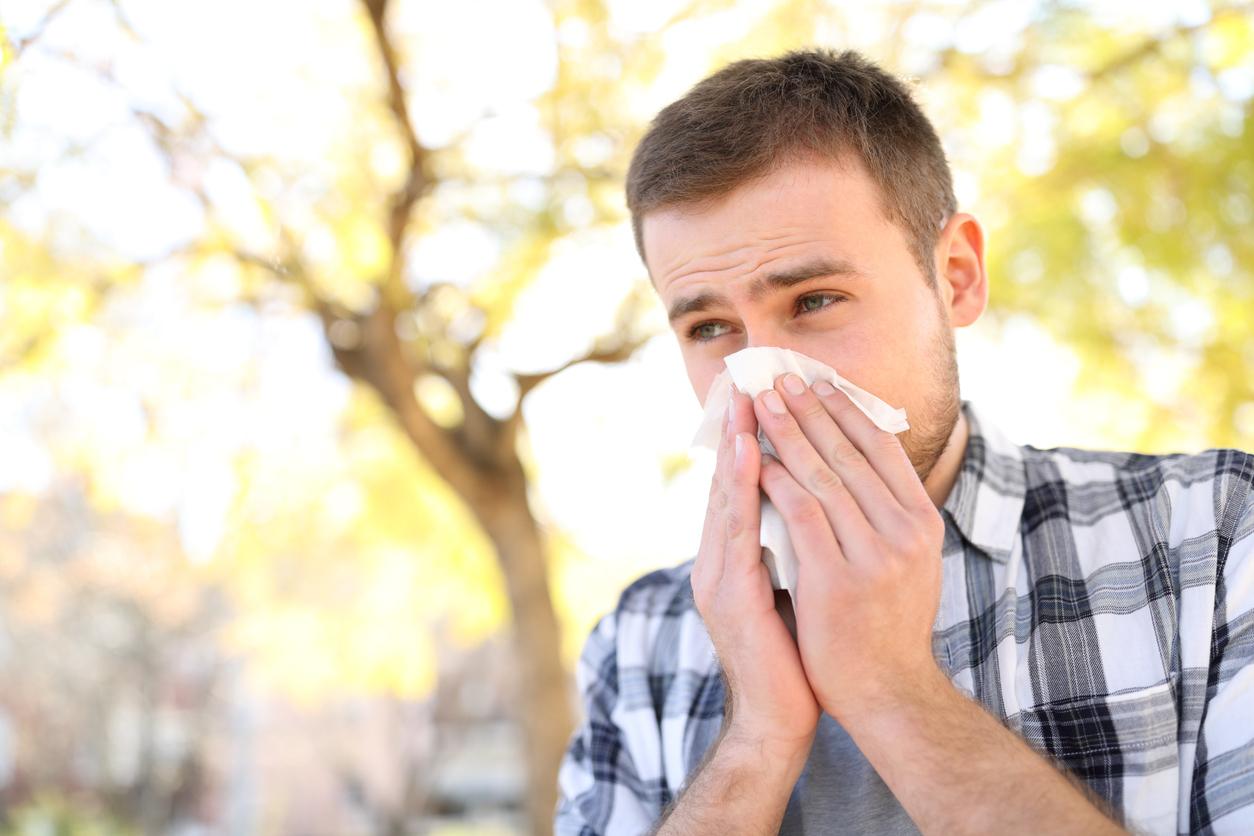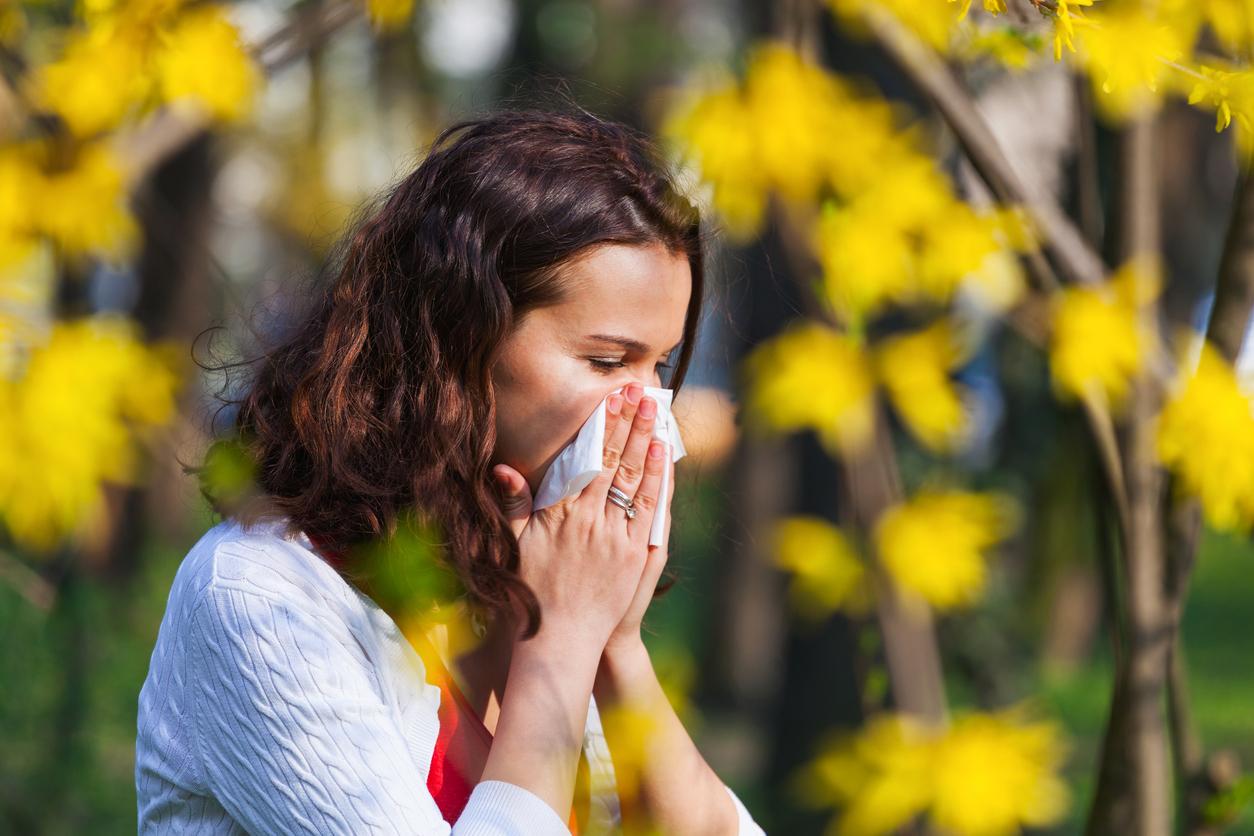Despite the snow and the improbable temperature drops at the start of spring, pollen should soon make a comeback, triggering a number of hay fevers.

- The exposure of the population to pollen constitutes a public health issue given the number of people who would be affected by allergies in France: around 20% of children from the age of 9 and 30% of adults.
If the cold and the snow gave a little respite to people allergic to pollen, it will only be short-lived.
Birch pollens are present
“As soon as warmer weather returns, birch pollen will be present, causing a medium to high risk of allergy in the northern half of the country, especially on Sunday April 3 and Monday April 4, before a new rainy weather limits the presence of pollen in the air”, can we read on the site of the national surveillance network (RNSA).
In addition, ash pollens are not left out, with also a medium to high level risk of allergy over a good part of the territory. Plane tree pollens have also taken advantage of the good weather over the last few days to spread, particularly in the Mediterranean and in the big cities, with a risk of allergy which will not, however, exceed the average level. The RNSA also reports some grass pollen on the western side of the country and in the Mediterranean, which will bother the most sensitive people.
On the other hand, the concentrations of cupressaceae pollen (cypress) are falling sharply with a medium level risk of allergy in the Mediterranean region. “In summary, the month of April is off to a good start for allergy sufferers, but beware of the sunny periods during which they will have to be vigilant and follow the treatments prescribed by doctors”, conclude the experts.
Symptoms of pollen allergy
The symptoms of pollen allergy mainly affect the respiratory tract (nose, throat, bronchi) and the eyes: sneezing, stuffy nose, runny nose, congested sinuses, loss of smell and taste, stinging, itching, red eyes and watery eyes. In some cases, exposure to pollen can trigger asthma.

.

















